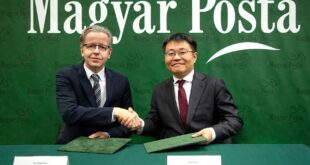MILAN (Reuters) -The founding family of Italian luxury shoemaker Tod’s said on Wednesday it would not proceed with a planned buyout of the company after failing to reach the 90% ownership threshold needed to take it private.
All shares tendered in the offer would be returned to their holders, the Della Valle family, which owns 64.5% of the company, said in a statement.
Shares in Tod’s fell as much as 21% on Wednesday to levels before the bid was launched at the start of August. They were down 18% at 32.6 euros as of 0907 GMT.
Tod’s founder and chairman Diego Della Valle and his brother Andrea, through the vehicle DeVa Finance, had offered to buy out other investors in Tod’s at 40 euros a share.
By the last day available for the offer, investors tendered Tod’s shares accounting for a total of 4,134,358 shares, which would have taken the family’s stake to just under 87%.
The buyout bid was the latest attempt to relaunch a company that, like other Italian brands, built their name on craftsmanship but has struggled to appeal to younger luxury shoppers in recent years.
The move was aimed at relaunching Tod’s by managing its diverse brands separately, possibly divesting some to focus investments on the most profitable ones, Roger Vivier and Tod’s.
That goal has not changed despite the offer not succeeding, the Della Valle family said.
“From tomorrow we will all work to achieve in the necessary timeframe the realisation of a project that we hope will be very successful,” it said, adding the structural foundations of the group remained strong. In addition to the eponymous brand famous for its Gommino loafers, Tod’s also owns the Fay and Hogan labels, as well as Roger Vivier, whose $800 a pair buckled shoes and successful relaunch have made it the group’s crown jewel.
The Della Valle family has previously said it could delist Tod’s by merging it into DeVa Finance within six months of the closing of the takeover bid.
The family did not specify in the statement whether that was still their intention.
However, such an option was seen as less market friendly and may result in shareholders, who decide against holding shares in a no-longer-listed company, having to exercise their right of withdrawal at a price below that offered in the buyout, brokers said.
(Reporting by Agnieszka Flak and Giancarlo Navach, editing by Jason Neely)
Source link



